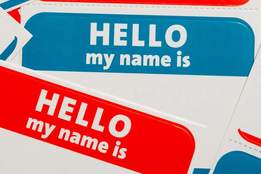Kawasaki disease
noun
Ka·wa·sa·ki disease
ˌkä-wə-ˈsä-kē- 

variants
or Kawasaki syndrome
or less commonly Kawasaki's disease
or Kawasaki's syndrome
or Kawasaki
: an acute inflammatory illness involving blood vessels throughout the body that is of unknown cause and chiefly affects infants and children
Note: Kawasaki disease is characterized especially by fever, redness and swelling of the hands and feet (often followed by peeling of the skin), conjunctivitis, a reddish rash typically on the abdomen and groin, inflammation of mucous membranes (as of the tongue and throat), and swollen lymph nodes in the neck. It may progress to sometimes life-threatening inflammation of heart muscle and coronary artery damage, such as bulging and thinning of the artery walls.
The high fever, rash, red lips and palms, and swollen lymph nodes pointed to another condition—Kawasaki disease. First identified in Japan in 1967, Kawasaki strikes more than 2,000 U.S. children annually, 80 percent of them under age five.— Michael Castleman
Michael Castleman
 Michael Castleman
Michael CastlemanThe most serious complications of Kawasaki disease involve the coronary vessels and the heart. About 14% to 30% of the affected cases have been shown to develop coronary aneurysms, resulting in acute myocardial infarction in some cases, and death may occur in 2%.— Gideon Koren et al.
Gideon Koren et al.
 Gideon Koren et al.
Gideon Koren et al.By nightfall the boy was started on a high dose of aspirin and IVIG, an infusion containing antibodies collected from thousands of blood donors, the first-line treatment for Kawasaki disease.— Lisa Sanders
Lisa Sanders
—abbreviation KD
 Lisa Sanders
Lisa Sanderscalled also mucocutaneous lymph node syndrome
Love words? Need even more definitions?
Merriam-Webster unabridged








Share